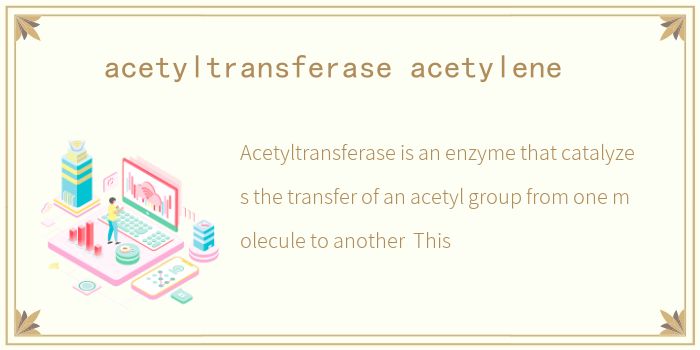acetyltransferase acetylene

Acetyltransferase is an enzyme that catalyzes the transfer of an acetyl group from one molecule to another. This process is important in many biological pathways, including the metabolism of carbohydrates, lipids, and amino acids. Acetyltransferases are also involved in the regulation of gene expression, as they can modify histone proteins to alter chromatin structure and gene accessibility.
One example of an acetyltransferase is acetylene, which is involved in the biosynthesis of the plant hormone ethylene. Ethylene is a gaseous hormone that regulates many aspects of plant growth and development, including fruit ripening, leaf senescence, and response to environmental stress. Acetylene is used as a substrate for the enzyme acetylene hydratase, which converts it to acetaldehyde. Acetaldehyde is then converted to ethylene by the enzyme alcohol dehydrogenase.
Acetylene is also used in the laboratory as a tool for studying enzyme kinetics. It can be used to measure the activity of acetyltransferases by monitoring the transfer of acetyl groups from acetyl-CoA to a target molecule. This technique is known as acetylene inhibition and is commonly used to study the activity of histone acetyltransferases, which are involved in the regulation of gene expression.
In summary, acetyltransferases play important roles in many biological processes, including metabolism, gene expression, and hormone biosynthesis. Acetylene is one example of a substrate that can be used to study the activity of these enzymes, and its use in the laboratory has contributed to our understanding of their function and regulation.
